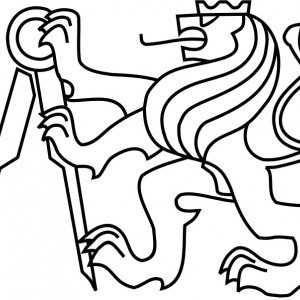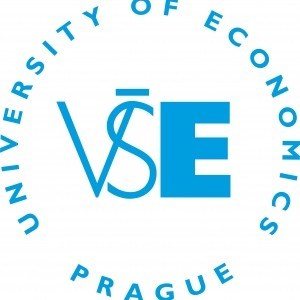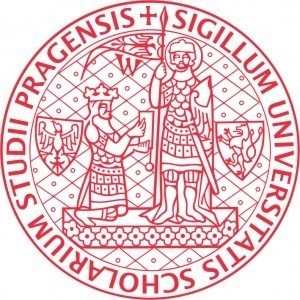Photos of university / #czuvpraze
Sustainable Agriculture and Food Security at Czech University of Life Sciences Prague offers a comprehensive interdisciplinary education designed to address the global challenges of sustainable food production, resource management, and environmental protection. This program prepares students to become innovative professionals capable of developing and implementing sustainable agricultural practices that meet the nutritional needs of a growing population while preserving natural resources and biodiversity. The curriculum combines knowledge from agronomy, ecology, economics, and social sciences, providing students with a holistic understanding of the complex interactions within agricultural systems. Students will learn about modern farming techniques, soil and water conservation, agroecology, climate change adaptation, and sustainable supply chain management. The programme emphasizes practical skills through laboratory work, field experiments, and internships with local farms and international organizations. Graduates will be equipped to contribute to the development of sustainable rural communities, policy-making, and innovative solutions in food security. The programme fosters critical thinking, problem-solving, and a strong sense of responsibility towards the environment and society. Taught by experienced faculty members and experts in the field, the programme also promotes international cooperation and cultural exchange, often offering opportunities for mobility and collaboration with partner universities worldwide. Graduates of this programme are prepared to work in public institutions, NGOs, research centers, private companies, or to pursue further academic research. Overall, the Sustainable Agriculture and Food Security programme aims to build a new generation of committed professionals dedicated to ensuring a sustainable future for agriculture and food systems globally.
The Sustainable Agriculture and Food Security programme at Czech University of Life Sciences Prague is designed to equip students with comprehensive knowledge and practical skills necessary to develop sustainable farming practices and ensure food security in a changing global environment. The curriculum integrates disciplines such as agronomy, environmental science, economics, and social sciences to provide a multidisciplinary understanding of modern agriculture challenges and solutions. Students will explore topics including sustainable crop and livestock production, soil health management, water resource conservation, agroecology, integrated pest and disease management, and organic farming techniques. The programme emphasizes innovative approaches to increasing agricultural productivity while minimizing adverse environmental impacts, promoting biodiversity, and conserving natural resources.
Throughout the course, students engage in hands-on training and fieldwork, gaining practical experience with modern agricultural technologies, precision farming, and resource-efficient practices. The programme also covers food security issues, including the socio-economic factors affecting food availability, accessibility, and affordability, especially in developing nations and vulnerable communities. Students analyze the impact of climate change on agriculture and learn strategies for adaptation and mitigation, ensuring resilience and sustainability of food systems.
In addition to technical expertise, the programme fosters critical thinking, problem-solving, and policy analysis skills. Students examine agricultural policies, international trade, and the role of innovations such as biotechnology and digital agriculture in shaping the future of food production. The programme collaborates with industry partners, research institutions, and NGOs to provide internships, workshops, and networking opportunities that prepare graduates for careers in sustainable agriculture development, food security management, consultancy, research, and policymaking.
By the end of the programme, students will be capable of designing and implementing sustainable agricultural systems that meet current nutritional needs without compromising the ability of future generations to meet their own needs. They will be equipped to work effectively within multidisciplinary teams and to contribute to solving complex challenges globally, advancing sustainable development goals related to zero hunger, responsible consumption, and environmental sustainability.
Programme requirements for MSc in Sustainable Agriculture and Food Security typically include a completed application form, proof of prior higher education completion (such as a bachelor's degree in agriculture, environmental sciences, or related fields), and evidence of English language proficiency (such as TOEFL or IELTS scores) if applicable. Applicants must submit academic transcripts demonstrating a solid background in relevant disciplines, along with a Curriculum Vitae detailing academic and professional experience related to sustainable agriculture and food systems. Letters of motivation or intent are usually required, where applicants describe their interest in sustainable agriculture and their career goals in food security. Some programmes may also require letters of recommendation from academic or professional referees who can attest to the applicant’s suitability for graduate study.
Additionally, applicants might need to pass an entrance examination or interview, especially if their academic records require further evaluation. It is recommended that applicants have a basic understanding of environmental management, agricultural practices, and food system sustainability. Prior practical experience, such as internships or work in related sectors, can strengthen an application but is not always mandatory. The programme aims to admit students with a strong interdisciplinary background and motivation to improve sustainable food systems worldwide. Candidates should meet the academic standards set by the university, demonstrating their potential to contribute to and benefit from advanced studies in sustainable agriculture. All these requirements are designed to ensure that incoming students possess the necessary foundation to succeed in this multidisciplinary and research-intensive field.
The financing of the Sustainable Agriculture and Food Security program at the Czech University of Life Sciences Prague is primarily structured through a combination of tuition fees, government funding, research grants, and institutional support. As a public university, Czech University of Life Sciences Prague benefits from state funding mechanisms that help subsidize educational costs for domestic and international students. Tuition fees for master's degree programs, including Sustainable Agriculture and Food Security, are determined according to the regulations set by the Czech Ministry of Education, Youth and Sports, and may vary depending on the student's nationality and residence status. International students from non-EU countries are generally required to pay higher tuition fees, which contribute significantly to the program's financing.
In addition to government subsidies, the university actively seeks research grants from national and European Union sources, which support not only research projects but also the development and implementation of their study programs. These grants help fund specialized equipment, research activities, and pilot projects within the program, providing students with practical experiences and engagement with current challenges in sustainable agriculture and food security. The program may also benefit from partnerships with industry stakeholders, NGOs, and governmental agencies that provide sponsorships, project funding, or internships, further enhancing the financial sustainability of the curriculum.
The university’s institutional funds and endowments also play a role in financing the program, enabling investments in faculty development, teaching facilities, and student support services. Tuition revenue collected from enrolled students is used to maintain and improve the quality of education, including hiring qualified faculty members, updating course materials, and ensuring access to modern laboratories and fieldwork opportunities. Furthermore, some students may have access to scholarships based on academic achievement, financial need, or participation in specific research initiatives, which help diversify and sustain the program's student body.
Overall, the financing strategy for the Sustainable Agriculture and Food Security program relies on a mixture of public funding, European grants, private partnerships, and student fees. This hybrid approach ensures that the program remains financially stable and capable of providing high-quality education, practical training, and research opportunities that align with current global challenges in sustainable agriculture and food security. Continuous efforts to secure external funding and optimize resource allocation are key components in maintaining the program's long-term viability and excellence.
Accreditation
The Faculty of Agrobiology, Food and Natural Resources (formerly the Faculty of Agronomy, prior to that, the School of Agricultural and Forestry Engineering at the Czech Technical University) has been developing agricultural fields of study since 1918. The faculty has the longest tradition of all the faculties at Prague University of Agriculture. Today, it offers an extensive range of different branches of biology, both in applied and theoretical forms - it is possible to study the fundamental principles of agriculture, horticulture, as well as the issues concerning natural resources, production of food and other raw materials, landscape care and environment protection, rural development and revitalization of rural areas.


